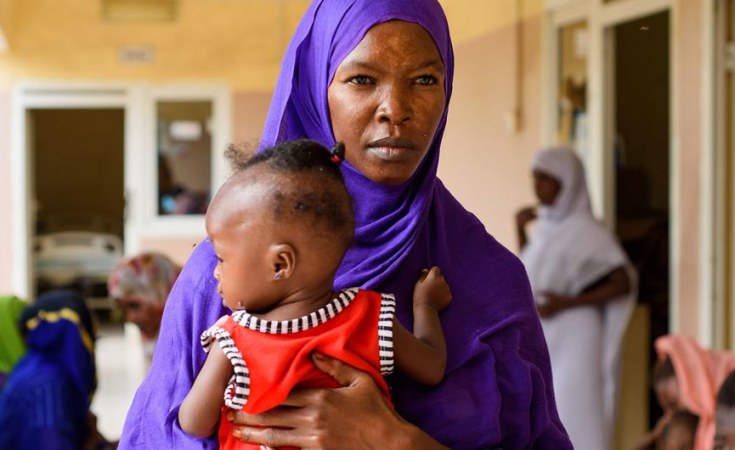The Government of Nigeria, and national and international partners Tuesday launched an appeal seeking US$306 million to fast-track food assistance, nutrition supplies and services, clean water, healthcare, and protection support to people in severe need in the northeast during the lean season (May to September).
In the Borno, Adamawa and Yobe (BAY) states, some 4.8 million people are estimated to be facing severe food insecurity, the highest level in seven years, according to the Government-led Cadre Harmonisé analysis released in March this year.
Children, pregnant and lactating women, older persons, and people living with disabilities are among those who are most vulnerable.
The appeal, the lean season food security and nutrition crisis multisector plan, is targeting 2.8 million of these people for urgent interventions.
This food and nutrition crisis, which has been compounded by soaring food prices, is primarily due to continued conflict and insecurity in the BAY states, alongside climate change impacts.
It threatens to become catastrophic without immediate and coordinated intervention.
Malnutrition rates are of great concern. Approximately 700,000 children under five are projected to be acutely malnourished over the next six months, including 230,000 who are expected to be severely acutely malnourished and at risk of death if they do not receive timely treatment and nutrition support.
Speaking at the launch of the plan, the Director General of the National Emergency Management Agency, Zubaida Umar, said: "The mobilization of funding and resources to address this lean season food security and nutrition crisis envisaged in the north-eastern part of the country is a step in the right direction in complementing the Federal Government's efforts to prevent the deaths of people as a result of malnutrition-related complications, adoption of negative coping mechanisms and other health-related issues among others."
Announcing the release of $11 million from the Nigeria Humanitarian Fund to jumpstart the emergency response, United Nations Resident and Humanitarian Coordinator Mohamed Malick Fall said, "I am confident that we have the capacity to address these increased needs in support of Government efforts, what we need now are resources. Joining hands together, pooling resources, to save lives and stop the suffering".
"UNICEF is deeply concerned about the escalating food security and nutrition crisis in the BAY states. The alarming rise in severe acute malnutrition among children underscores the urgent need for immediate action.
"This year alone, we have seen around 120,000 admissions for the treatment of severe acute malnutrition with complications, far exceeding our estimated target of 90,000.
"We must ensure that lifesaving nutrition commodities reach every child in need. This is not just a call to action; it is a race against time to save lives and protect the future of millions of vulnerable children," said Dr Rownak Khan, the Acting Representative of UNICEF Nigeria.
While highlighting that immediate actions need to be taken for longer-term results, the Food and Agriculture Organization (FAO) Representative ad interim in Nigeria, Dominique Koffy Kouacou, said, "Given the urgent situation, urgent interventions are required to support short-, medium- and long-term needs of vulnerable populations.
"The focus therefore needs to be on building resilience supported by emergency agriculture, including seeds, fertilizer, livestock and technical training, and developing agribusiness for better production and better nutrition".
The lean season food security and nutrition crisis multisector plan is part of the 2024 UN-coordinated Humanitarian Response Plan for Nigeria.


